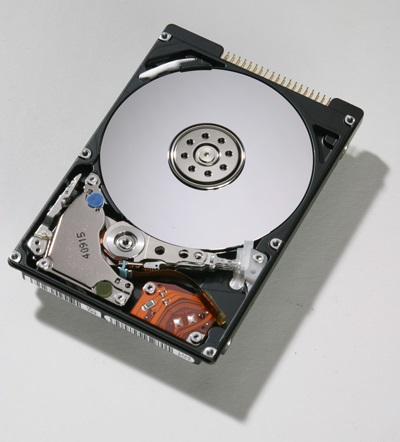What is a hard drive and what does it do?
A computer’s hard drive is a critical piece of its equipment as it is where computer data is stored. It is a permanent storage device so your information remains on the computer, even if it is not running. Every time you create and save a data file, such as a new document in Microsoft Word, it is written to the disk and stored for your future use. The hard drive’s responsibility is storage for your computer. Hard drives were invented over 50 years ago and have been used in personal computers since the mid-1980’s.
How does it work ?
A hard drive consists of several components. There are one to five disks, one on top of the other, spaced just a little bit apart. These discs are called platters, which can hold a large amount of data. In addition, the arm is what reads and writes data on the disk. This does not actually touch the platter even though it may appear to do so. This is an incredibly sensitive portion of the hard drive, as if it faces continual exposure to things such as sudden abrupt jolts from dropping or banging the computer over time, it can result in a severely damaged hard drive.
How to protect your hard drive
Protecting your data and saving your hard drive can be achieved by following pretty basic handling instructions. Read the manual that comes with your computer that includes manufacturer’s warnings, suggestions and care tips. A common suggestion is to avoid leaving your laptop or computer in direct sunlight and to ensure there is enough airflow circulating during heavy usage. In addition, excessive use can also be damaging. Be sure to give your hard drive a chance to rest, particularly after long periods of usage. This is especially so with a laptop that has limited abilities to radiate the heat from the device.
While you always want to handle your computer or laptop with care, it is extra important to the life of your hard drive to make sure you continue to do so. Even though they are shock rated, hard drives are extremely sensitive, and as such banging into your equipment or dropping a laptop can have serious damage. Always close your laptop before transporting it and ideally do so in a secure, padded laptop bag or case.
Damage Control
Even when being careful, accidents can still happen. If your laptop is either on or in sleep mode when it is dropped, it will almost certainly see hard drive damage. Depending on the severity of the drop and damage, you may or may not be able to recover your data easily. If you do not hear a lot of clicking and grinding noises when you turn on the computer, you can try to connect your hard drive to another computer to try and recover your files. To do this, you need to purchase a USB hard drive adapter and connect it to both the hard drive and a new computer. Once connected, you should be able to locate the hard drive as an existing drive on the new computer and navigate to your files.
However, if there are a lot of clicking noises, your hard drive is most likely damaged and you will need to take it into a computer repair store for service to avoid any more damage or complete loss of files.
In rough environments, consider changing out your drive to one of the newer style SSD drives, as there are no moving parts in these drives to get damaged by abrupt jolts.

